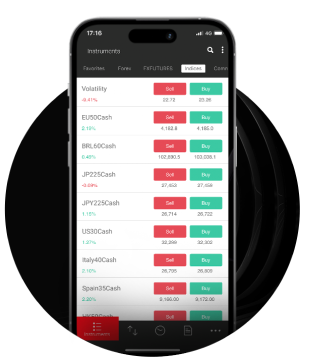En la historia del trading de forex, las historias de éxito rápido suelen ser demasiado buenas para ser verdad. Pero para algunos traders, especialmente aquellos que comenzaron con metas modestas, el éxito se volvió real. Una historia que destaca es la de Bill Lipschutz, quien convirtió un trabajo secundario en una carrera multimillonaria.
Bill Lipschutz nació en 1956 en Farmingdale, Nueva York. Le fue bien en la escuela y se graduó del programa de arquitectura de Cornell, obteniendo también un MBA en finanzas de la escuela de negocios de Cornell. Aunque tenía pasión por la arquitectura, no podía soportar el tiempo que se necesitaba antes de poder trabajar en diseños reales.
En la escuela, Bill realizó trading hipotético en papel en una clase donde cada estudiante comenzaba con $100,000. Al final del curso, había convertido esa cantidad en $29 millones, a pesar de que no había límites de apalancamiento.
Empezando pequeño
Bill Lipschutz didn’t plan to become one of the world’s top currency traders. While studying at Cornell University, he inherited $12,000 worth of stocks when his grandmother passed away.
The portfolio wasn’t simple, it included many different stocks, which were held in many different places. The effort of selling these stocks, along with his earlier success in paper trading, most likely motivated him to start trading with real money.
While at Cornell, he started trading using the $12,000 he inherited. He spent a lot of time researching the markets, which became a core part of his trading approach. Research came naturally to Bill. He finished his MBA in 1982, before the internet, so research meant long hours in the library. In comparison, today’s trading research is so much easier.

The big loss
Durante cuatro años en la universidad, Bill convirtió su herencia de $12,000 en $250,000. Comparte esta historia en el libro The New Market Wizards: Conversations with America’s Top Traders. Cuando se le preguntó qué pasó con esos $250,000, Lipschutz se refiere a la “reversión de Granville” en septiembre de 1982.
El consejo del famoso asesor de mercado Joe Granville a sus lectores fue en contra de su posición larga, y perdió casi toda su cuenta en menos de una semana cuando muchas personas se posicionaron en su contra. A pesar de la pérdida, Bill no perdió la confianza. Lo vio como “un gran error”, se mantuvo enfocado, siguió mejorando y, finalmente, consiguió un empleo en Salomon Brothers.
Joining the right broker
El próximo gran paso de Bill llegó cuando se unió a Salomon Brothers, uno de los bancos de inversión más prestigiosos de la época. Fue allí donde Bill realmente consolidó su legado. Durante su tiempo en Salomon Brothers, según se informa, generó $300 millones para la empresa en un solo año únicamente a través del trading de forex.
Salomon Brothers had an insular culture, known for developing its own traders and teaching them how to succeed. This approach applied to creating a foreign exchange department. While most companies would have hired a seasoned currency trader to lead such an effort, Salomon took a different route. They appointed a senior person from their bond arbitrage department to head the new FX department, even though he had no prior experience in FX.
Esta fue una gran oportunidad para Lipschutz. Le dio la posibilidad de dejar su huella en un departamento recién creado, enfocado en un mercado que ya conocía bien. Bill también era la única persona en Salomon con experiencia en opciones, un área que apenas comenzaba a ser ampliamente conocida en el mundo del trading.
Lipschutz volviéndose independiente
En 1990, Bill dejó Salomon Brothers, donde su último puesto fue jefe del Grupo Global de Opciones FX y del Mesa de Trading FX de Nueva York. Como ya se mencionó, según informes, generó más de $300 millones en la mayoría de los años para Salomon Brothers. Después de alejarse del trading por un corto período, regresó a los mercados en 1995 con su propia empresa, Hathersage Capital Management.
Bill Lipschutz’s trading strategy
The key focus of Lipschutz’s trading strategy is the management of the risk-reward ratio for each trade. He believes that the management of this aspect of trading can determine the success or failure of a trading system. In his opinion, the ideal risk-reward ratio is 3:1, which means that investors should focus on making $3 worth of profit for every $1 of risk. The core principles of his trading strategy include:
1. Trade judgement
Lipschutz enfatiza la importancia de evaluar las probabilidades de éxito o fracaso antes de entrar en una operación. Una operación de alta recompensa con alta probabilidad de pérdida a menudo es peor que una operación de bajo riesgo con alta probabilidad de ganancia. Por lo tanto, Lipschutz insta a los traders a centrarse en evaluar el resultado probable de una configuración de operación.
2. Position sizing
Lipschutz stresses that trade size is also a key part of any trading plan. It helps traders manage their risk and stick to their chosen risk-reward ratio. For example, if a trader has capital of $100,000 and a daily loss limit of $2,000, and they find a trading opportunity with a risk-reward of $1,000 risk to $3,000 reward per lot, they can enter into it with 2 lots and still stay within their risk limit.

3. Stop-loss and take-profit limits
A trader needs to set clear stop-loss and take-profit levels before entering a trade. This would help them stay disciplined and stick to their strategy, regardless of the trade’s outcome. These predefined limits also help traders avoid emotional decision-making, which is often where traders make costly mistakes.
Bill Lipschutz’s advice for beginners
Lipschutz aparece en varios libros de trading conocidos, incluyendo ‘The Mind of a Trader: Lessons in Trading Strategy from The World’s Leading Traders’ de Alpesh B. Patel y ‘The New Market Wizards: Conversations with America’s Top Traders’ de Jack D. Schwager. En estos libros, comparte consejos valiosos para quienes comienzan su camino en el trading, tales como:
1. Never underestimate time as a risk factor
Bill Lipschutz aconseja: “Si la mayoría de los traders aprendieran a esperar el 50% del tiempo, ganarían mucho más dinero.”
When you enter a new trade, it’s not just your money at risk, but also the time and attention that goes into monitoring it. So any trade with a longer time horizon carries greater opportunity costs, both in terms of the capital tied up and the attention it demands.
This makes it harder to manage multiple trades at once. So, a clear interpretation of this advice is to focus on one trade at a time and weigh all the costs related to it.
2. Absorb the pain that comes with the losses
According to Lipschutz, most traders experience beginner’s luck early on, but most give up when the losses start piling up. This is where most trading careers end. His advice to newcomers is to feel the pain of losses without letting it overwhelm you emotionally.
The reason for this is to avoid becoming numb to it. A mind that is numb to pain from financial losses tends to take bigger, reckless risks.

3. Never underestimate externalities
One of the biggest mistakes traders make is ignoring the million factors that can impact the outcome of a trade. External forces, like market sentiment and news events, can easily make or break a trading system.
That’s why it’s essential to account for these factors in your strategy. For example, a trader who relies on análisis fundamental might still use análisis técnico. It might not be their main technique, but there’s no harm in using it.
4. Make trading your passion
Cuando el trading se convierte en tu pasión, dedicas más tiempo y energía a aprender el sistema que puede mejorar tu desempeño en el trading.
5. Overconfidence is your biggest enemy
Lipschutz often reflects on his own journey – from rags to riches and back again – as proof that Forex trading has the potential to change your life in either direction.
The outcome depends entirely on your actions. He stresses that overconfidence is one of the most dangerous traits a trader can have as it can lead to reckless decisions. In contrast, consistent discipline forms the foundation for long-term success.
Aviso legal:
Esta información no se considera asesoramiento de inversión ni una recomendación de inversión, sino una comunicación de marketing.
















